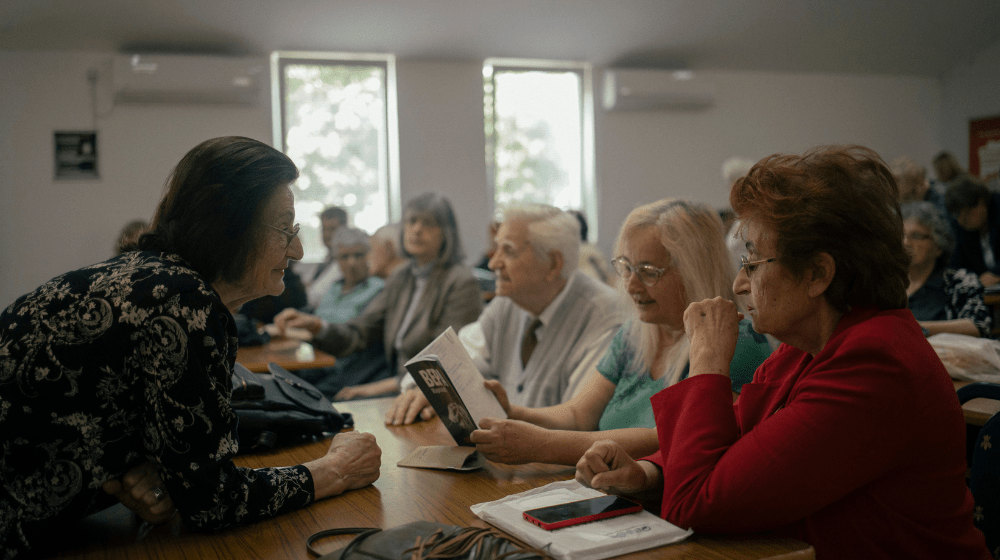Although the Decade of Healthy Ageing started in 2021, a small community centre in the heart of Serbia has been successfully working on quality and healthy ageing since 2012.
Founded by the Red Cross, in the city of Kragujevac, in central Serbia, the Corner for Quality Ageing is now the primary reference for ageing in Central Serbia thanks to the dedicated crew who runs it - mostly on a volunteer basis - as volunteers for the Red Cross.
The Corner is decorated with handmade artworks by its members, there’s always something sweet to snack on with some tea or coffee, a memory board with group photos at the entrance, and one person is almost always there - the president of the Corner, Milka Ignjatović.
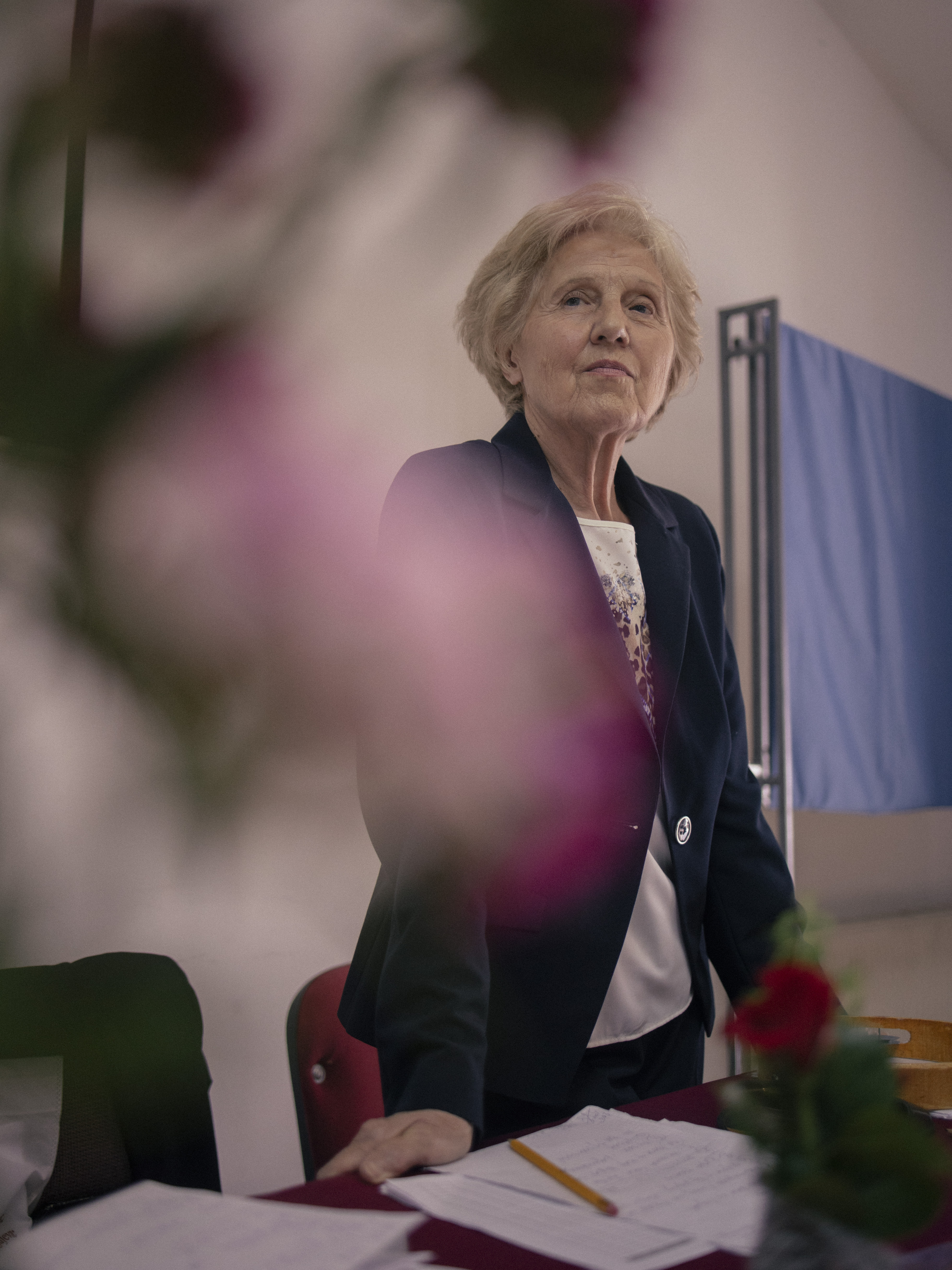
Milka Ignjatović starting the weekly Healthy Ageing workshop.
Photo: Vladimir Živojinović
The importance of local initiatives like this one is becoming more pronounced as the population in Serbia gets older. The average age has increased from 40.2 in 2002 to 43.8 in 2022. Today, every fifth person in Serbia is over 65 years old and it is expected that every fourth person will be over 65 by 2041.
More than half of the older persons in Serbia feel discriminated against, especially when they come into contact with state institutions, or seek out information or services on all aspects of life, according to the first comprehensive Report on discrimination against older persons, published by the Commissioner for the Protection of Equality with the support of UNFPA in 2021. A recent UNFPA study found that the estimated older persons’ poverty rate in 2022 was 12.48 per cent, almost double in comparison to the level before COVID-19 (6,9 per cent).
In November 2019, at the Nairobi Summit on ICPD25, the Government of Serbia formally committed itself to building an inclusive society, where all people, including the older and the younger, people with disabilities, ethnic minorities and other vulnerable people enjoy equal rights and are engaged and contribute to the prosperity of their societies.
People like Ms. Ignjatović are helping Serbia meet those goals. When asked to describe one active day in the Corner, Ms. Ignjatović is enthusiastic.
“We start by chatting about the newspapers and discussing the hot topics of the week,” she said. “Then we exercise! These exercises are customised for our age. We have an older instructor who helps us with this and keeps us motivated. After physical activity, we always laugh a lot, so we created an activity out of that - leave the jokes for the end. Then, after all that laughter, we start with whatever is on our programme for the day.”
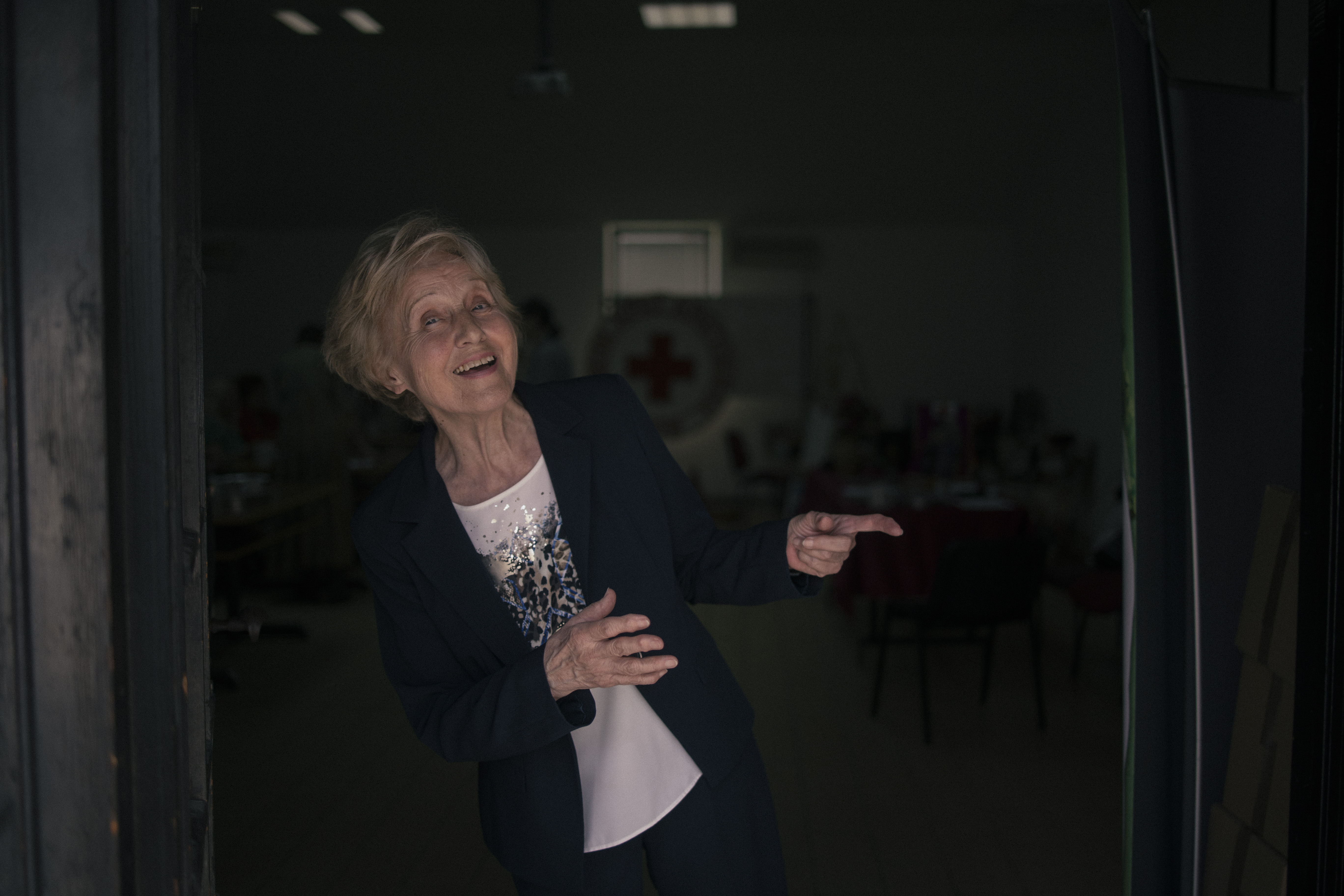
Milka Ignjatović, at the entrance of the Corner, ready to welcome visitors. Photo: Vladimir Živojinović
The Corner’s programme includes cultural and educational activities, including singing, drama, writing poetry and prose and playing musical instruments. In addition, over 100 members perform for each other and organize events for their families and friends, especially for the kids since some bring their grandchildren.
“Often, our guests are the youngest,” said Ms. Ignjatović. “The oldest and the youngest: we grow young again for a bit, they learn something new, like how to make pancakes, it’s a win-win!”
One of their most important activities at the Corner is humanitarian work. During the big holidays in Serbia, Corner members organize something called “The Basket of Goodness” to give gifts and goods to the most vulnerable families and members. During autumn and winter, most of the older women at the center knit and donate socks, scarves, hats and woolen gloves to children at the Centre for Social Work.
UNFPA also supported the work of the Corner between 2021 and 2022 as part of the "EU Support for Social Housing and Active Inclusion" (EU SHAI) programme, financed by the European Union and implemented by the United Nations Office for Project Services (UNOPS ). This comprehensive approach extended beyond Kragujevac, with similar projects actively contributing to the well-being of older communities in Pirot and Nis in southern Serbia, as well as in Indjija and Subotica in the northern part of the country.
Over 700 older persons in Kragujevac and across the country actively participated in tailored sessions that aimed to enhance their physical well-being and overall quality of life amid COVID pandemic.
Valuable experience beneficiaries bring from the Corner are numerous. "I like to come to the Corner because the activities there are different from my everyday life, I get to know and learn new things, see dear people, meet new ones... You're never too old for new friends, right?"- states Draginja Antic, one of the regular participants in its local activities.
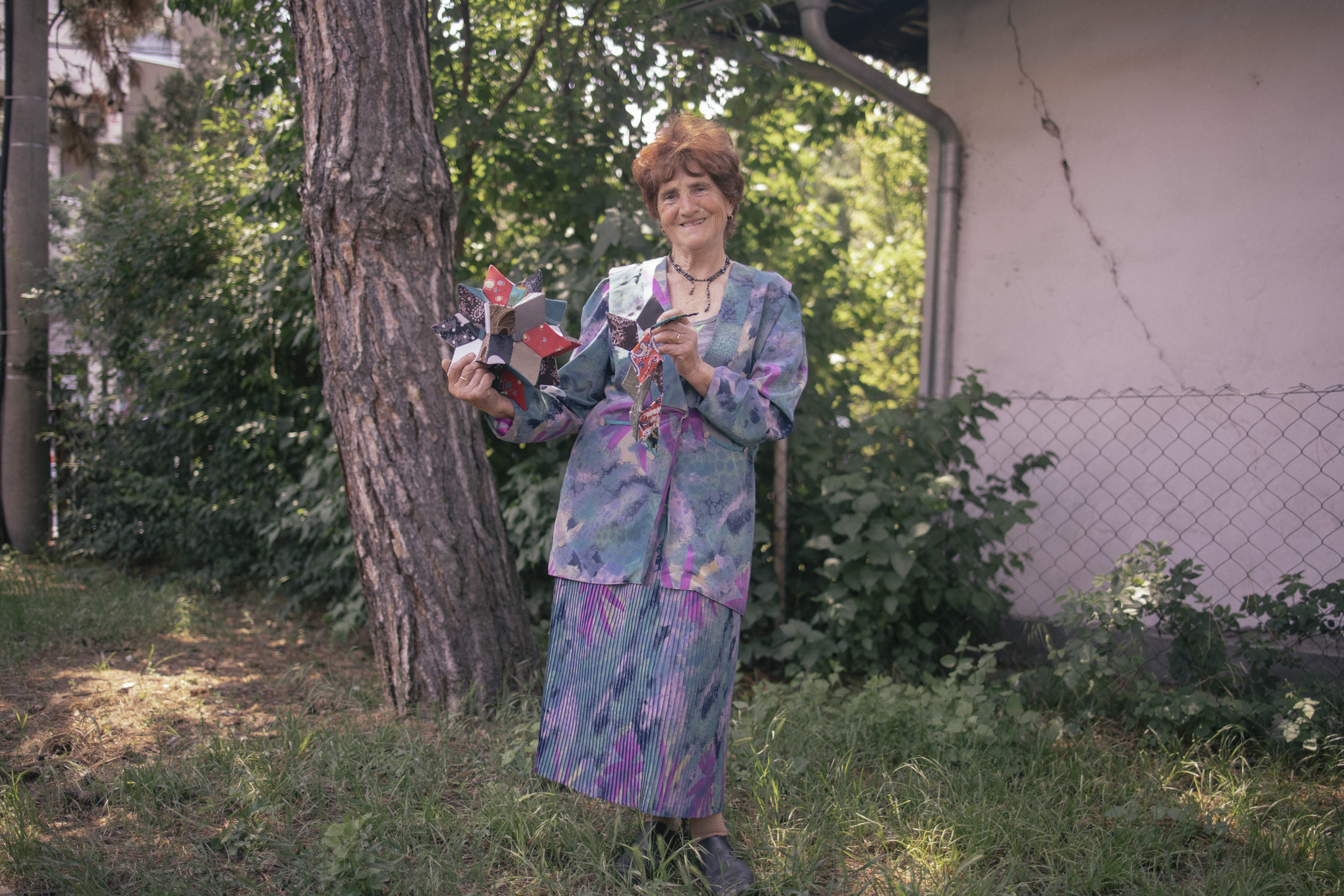
Draginja Antić, the beneficiary of the Corner, with her handmade decorations. Photo: Vladimir Živojinović
In 2020, members of the Corner started a new activity called, “Hello, how are you?”. Every week, older people who are members of the Corner, call other older people at least once to ask about their day or week, chat a little, and offer assistance with grocery shopping, deliveries and other regular tasks.
“Some people are delighted when we call them,” said Ms. Ignjatović. “They look forward to the call. It means a lot to them, because they feel really lonely. Sometimes they spend the whole day without talking to anyone. But the youth are here to help! For example, during the pandemic, young people, our volunteers, helped a lot. They would take people to the doctor, bring groceries to the ones living further from the city, they are simply our power source.”
Addressing demographic change and benefiting from the valuable contributions older people bring to the society
Complementing local initiatives like the Corner, the Government of the Republic of Serbia, with UNFPA support, launched the Strategy for Healthy and Active Ageing in 2023. Minister Darija Kisić emphasizes the need to separate ageing from health and social issues, aligning with the holistic approach advocated by similar initiatives.
"The basic concept of the new Strategy is to develop awareness about active and healthy ageing. To think about it as an active component, where we show all our potential and the experience we have gained during our lives."- states Kisic.
The previous Strategy of Ageing in Serbia ended in 2015. In September 2023, the Government of the Republic of Serbia, with support from UNFPA, launched the Strategy for Healthy and Active Ageing, while the Action Plan has been adopted later that same year, on 25 December 2023.
The new strategy will run until 2030 and aims to change the attitudes of the younger population towards older people by raising awareness that older people are important resources of information and skills that offer huge benefits to modern society.
“The adoption of the Strategy and the Action Plan marks a significant milestone in our journey towards creating a more resilient society,” says John Kennedy Mosoti, UNFPA Director for Serbia.
“A society that truly values older persons and their contribution and promotes intergenerational exchange amongst people of all ages. I am pleased that UNFPA played an important role in this process under the leadership of the Ministry for Family Welfare and Demography and we look forward to joining our national partners in implementing these measures as soon as possible”
Milka Ignjatović and the Corner for Quality Ageing exemplify the power of community-driven initiatives in creating a healthier and more inclusive ageing society.
“To age healthy means not to give up on things. To travel, love, work, dream, continue doing and having all those things.”- adds Milka.
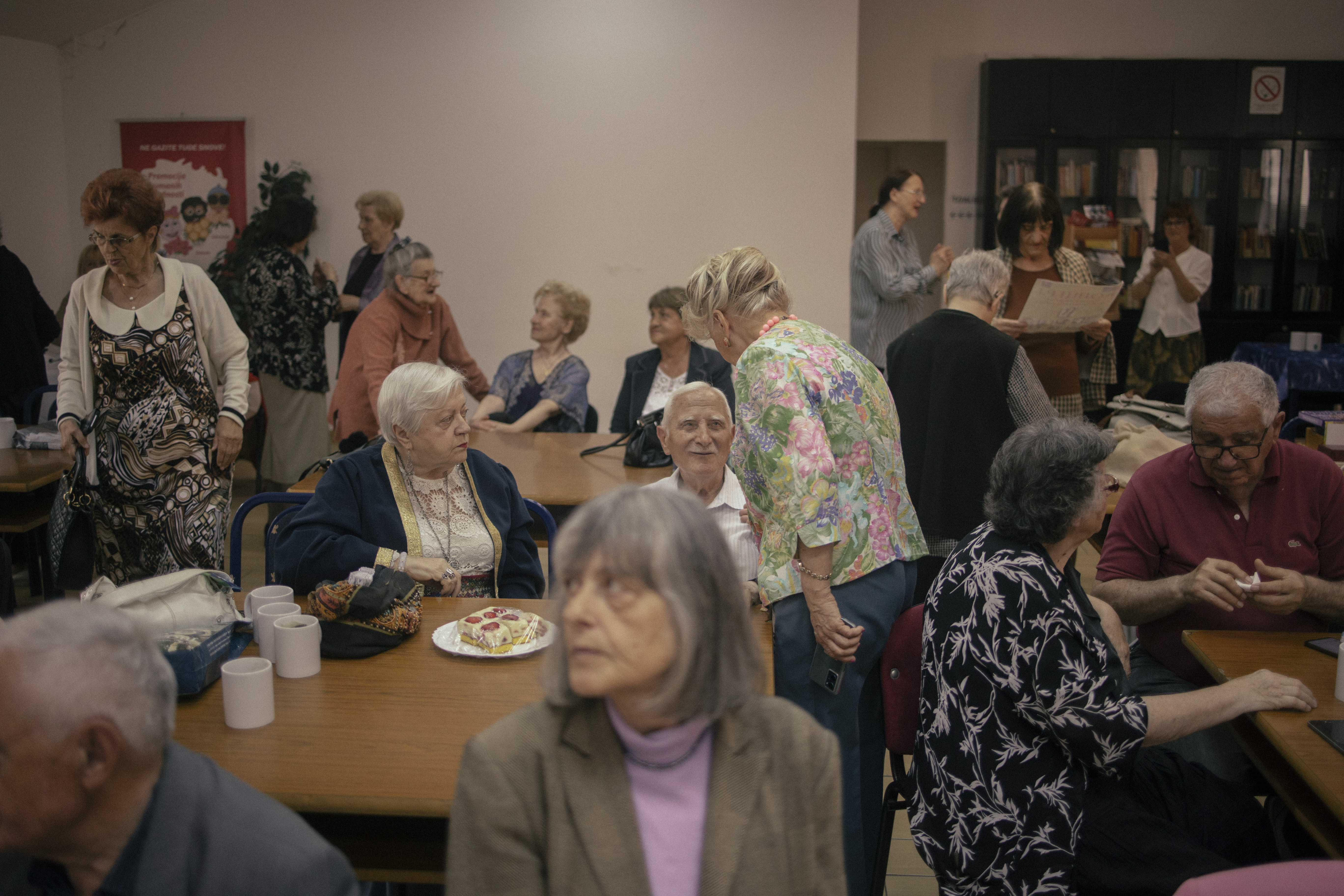
Older people meet together at the corner in Kragujevac. Photo: Vladimir Živojinović

